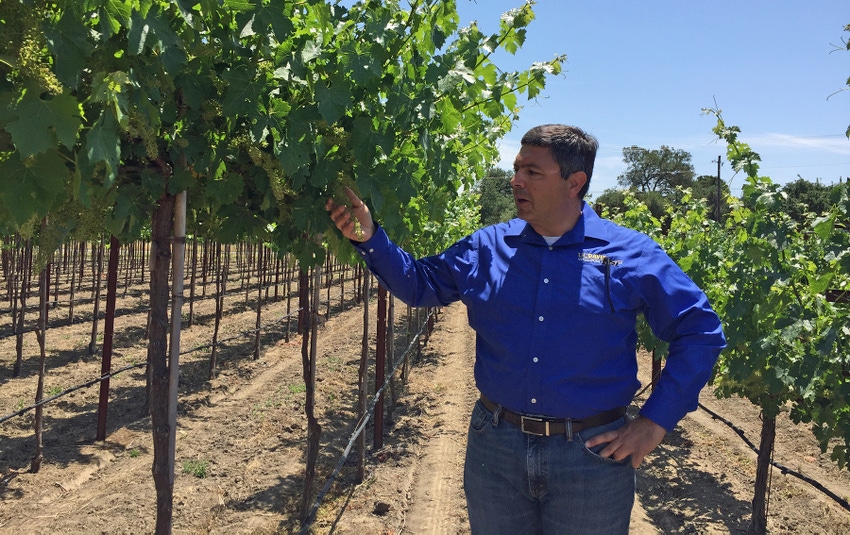
University of California (UC) researcher Kaan Kurtural has gained recognition in recent years for automating a vineyard operation in the Napa Valley, which was planted at a density conducive to the practice.
Now Kurtural and other UC Cooperative Extension scientists are applying their knowledge in the San Joaquin Valley, where they say growers who wish to switch from hand to mechanical pruning to save labor won’t have to replant to do so.
They’ve published a new study in HartTechnology explaining that growers can retrain their vines to make the transition, without losing fruit yield or quality, according to a UC news release.
“We have proven beyond a doubt that an older vineyard can be converted to mechanization,” declares Kurtural, an extension specialist in UC-Davis’ Department of Viticulture and Enology.
“There is no loss of yield during conversion and post-conversion yield is better and fruit quality is equivalent to or better than hand-managed vines,” he says in the release. “The economies of scale are evident in the savings per acre and per vine as depicted in the balance sheet provided with the newly published paper.”
Mechanical pruning reduced labor costs by 90 percent, resulted in increased grape yields and had no impact on the berry’s anthocyanin content, the study found.
The cost savings and improved quality could be welcome news for growers, as the cost of re-establishing a vineyard in the region is roughly $15,000 per acre, according to university scientists.
Mechanization sought
Wine grapes are among numerous commodities whose growers have sought to mechanize as labor shortages have worsened. In February, farmers gathered at Golden State Vintners in Fresno, where University of California Cooperative Extension viticulture farm advisor George Zhuang and others gave a mechanical pruning field demonstration.
Similar efforts are happening throughout the West, including in Washington state and Oregon, where scientists are making precision viticulture research a priority. One scientist, Oregon State University’s Clark Seavert, plans to take Pacific Northwest research data to the California Wine Growers Association in the hopes it could tie into a Western Technology Network, he says.
Kurtural has devoted much of his career to improving production efficiency in vineyards. He is familiar with vineyards in the San Joaquin Valley, where more than half of all California wine grapes are grown; he was an associate professor in viticulture and enology at California State University-Fresno before joining the UC-Davis faculty in 2015.
Kurtural’s 40-acre test vineyard in Oakville, Calif., is pruned mechanically with a machine manufactured by Fresno-based V-MECH LLC, which uses telemetry and GPS sensors to allow variable management of the vineyard.
The San Joaquin Valley research was conducted in an 8-acre portion of a 53-acre, 20-year-old Merlot vineyard in Madera County over three seasons, according to the UC’s release. After the project was completed, the grower converted the rest of the vineyard to a single high-wire sprawling system.
Many other growers have done the same, university advisors say. The Wine Group, which manages 13,000 acres of vineyards in Central California, is establishing new vineyards and converting old ones for mechanical pruning and suckering, according to the UC.
For more information on how Kurtural and Zhuang converted existing orchards for mechanical pruning, visit https://bit.ly/2VcFS2h .
For more news on pests, disease management and other issues affecting vineyards, subscribe to the bi-monthly newsletter The Grape Line.
About the Author(s)
You May Also Like






